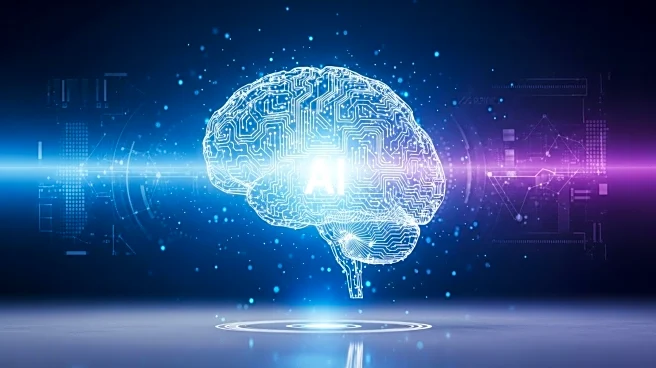What's Happening?
Geoffrey Hinton, a pioneering computer scientist known as the 'godfather of AI,' has expressed concerns about the impact of artificial intelligence on employment and profits. In an interview with the Financial Times, Hinton predicted that AI will lead to significant unemployment while increasing profits for the wealthy. He attributes this outcome to the capitalist system rather than AI itself. Hinton's comments echo his previous statements about AI companies prioritizing short-term profits over long-term consequences. Although layoffs have not yet surged, there is growing evidence that AI is reducing job opportunities, particularly for entry-level positions. A survey by the New York Fed indicates that companies using AI are more likely to retrain employees than to lay them off, though layoffs are expected to rise. Hinton believes healthcare will remain safe from job losses due to AI, as increased efficiency could lead to more accessible healthcare services.
Why It's Important?
The implications of Hinton's predictions are significant for various sectors of the U.S. economy. If AI leads to widespread unemployment, it could exacerbate economic inequality, with wealth concentrated among those who can leverage AI to replace human labor. This shift may challenge existing labor markets and necessitate new policies to address job displacement. Industries that rely heavily on routine tasks may face the most disruption, while sectors requiring high skill levels may remain less affected. Hinton's remarks highlight the need for careful consideration of AI's role in society and the potential need for regulatory measures to mitigate negative impacts.
What's Next?
As AI technology continues to evolve, stakeholders including policymakers, businesses, and civil society groups may need to address the challenges posed by AI-driven unemployment. Discussions around universal basic income and retraining programs could gain traction as potential solutions to support displaced workers. Additionally, the ethical and regulatory aspects of AI deployment may become more prominent in public discourse, with calls for increased oversight to prevent misuse and ensure equitable benefits from AI advancements.
Beyond the Headlines
Hinton's warnings also touch on broader ethical and societal issues related to AI. The potential for AI to be manipulated for harmful purposes, such as creating bioweapons, underscores the need for international cooperation and regulation. Furthermore, the debate over AI's impact on human dignity and the value of work raises questions about the future of employment and societal structures. As AI technology progresses, these deeper implications will likely shape discussions on the balance between innovation and human welfare.










